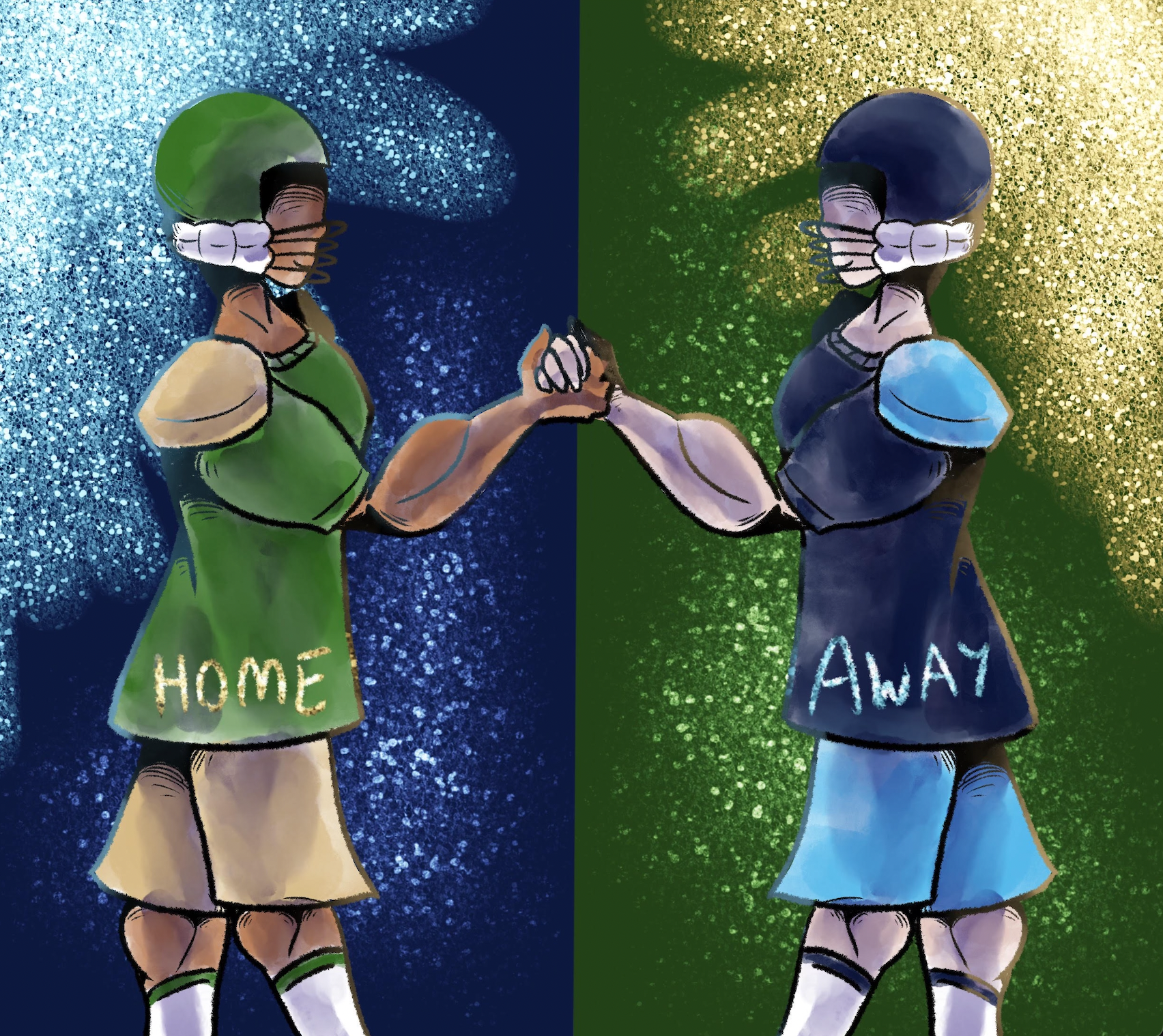Whether it be football, soccer, basketball, or softball, a earnest love of athletic competition has been a long-established tradition in the Saint Stephen’s community. With that, the administration, athletic department, and coaches, have placed an emphasis on sportsmanship and goodwill in equal importance to the love of winning. This, for Saint Stephen’s, has been a hallmark of high school sports
But in recent months, several unsportsmanlike incidents at Saint Stephen’s sporting events have brought something to light— we, all of us, need a good reminder of what high school sports are all about.
Not all of the reported unsavory instances involved people from our school community— some related to the opposition’s spectators— but the point is still important: when it comes to high school sports, sportsmanship is more important than winning.
Following a few problematic encounters at games in November and December, an email from Head of School Mr. Peter Kraft went out to the school community. Kraft wrote— “Interscholastic athletics are by nature public and often emotional events.”
And emotion, when it comes to sports, can be great. It can lead to athletes playing their best, teams bonding together, and communities pulling as one. But it can, if we forget what sports are all about, also lead to poor decisions: yelling at referees, verbal sparring in the stands with opposing fans, pushing, shoving and worse out on the field, and coaches losing their cool.
These incidents, that led to a Mr. Kraft community email, have made one thing apparent: We at times forget what are really the most important parts of any game– sportsmanship and a love of the game itself.
Because sporting events are intense by nature (especially in high school), it’s easy for coaches, players, and parents to get riled up.
Many in the world of sports tend to get caught up in the idea of winning. From the players to the coaches to the parents, we forget about the joy of playing and only focus on the score. But the truth is, there’s so much more to sports than a number on a scoreboard.
Hyper-focusing on numbers and performance actually has a negative effect on the players themselves. There is so much stress put on athletes that , according to research from George Washington University, “about 70 percent of young athletes leave organized sports by the time they hit middle school simply because they are no longer having fun.”
This stress causes parties involved to behave in unkind ways. Take the recent slew of unsportsmanly incidents. In any other situation, these players, coaches, and parents may have been kind and friendly with one another, but insert a scoreboard, endorphins, and over-competition, and it all goes south.
If you’re a player, practicing sportsmanship will make your games run more smoothly, lead to more meaningful connections with your teammates, lead to less stress, and improve the reputation of your program. Getting a foul or red card will only hurt your team, school, and personal reputation; and let’s face it– when you’re a bad sport, it’s just not a good look.
If you’re a parent, try to remember the reason your player is out their. If you don’t, you may make decisions that aren’t ideal– you may be tempted to yell at your player, or boo the other team, or give the referee a piece of your mind. But this isn’t a good look, either. If you you’re a person who gets swept up in the heat of the moment, ask a friend or spouse or sibling to tap your shoulder, a simple reminder to keep your cool.
If you’re a coach, players will follow your lead. Remind them about sportsmanship– tell them what it looks like, what it sounds like, and what will happen if they don’t use it. And if you’re a coach who loses his cool, ask a trusted captain or assistant to have a code word or prompt that let’s you know when you’re out of line.
At the end of the day, it’s important to show respect for teammates, opponents, referees, and your schools. Sportsmanship is a valuable life-lesson that our student athletes can learn to understand through sports, but it doesn’t come easy.





melitta lovland • Jan 11, 2025 at 5:23 pm
Well stated!!! Thanks for making undesirable behavior unacceptable!